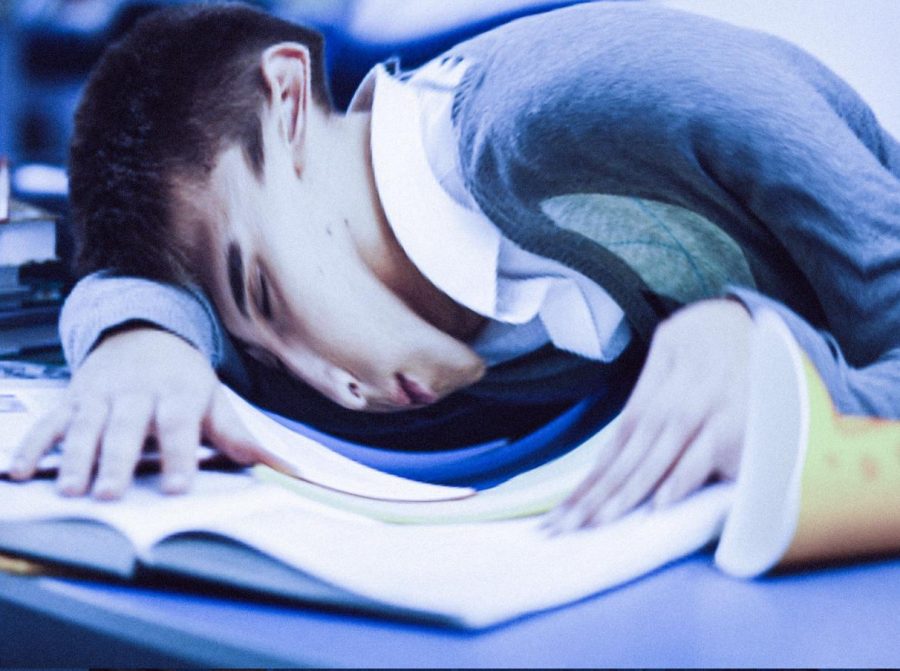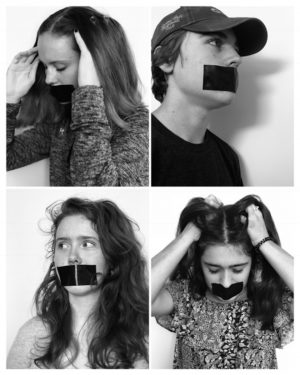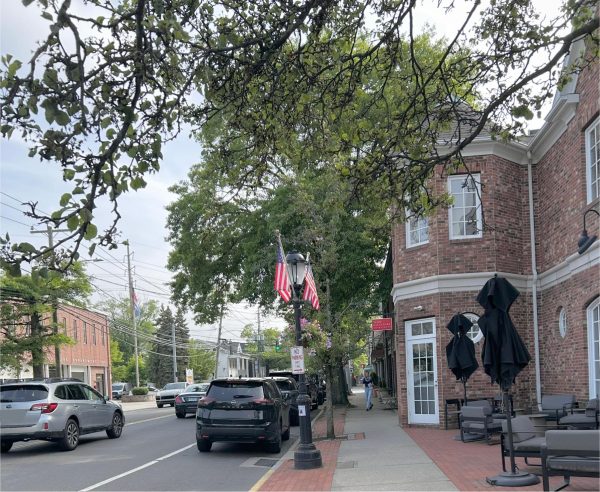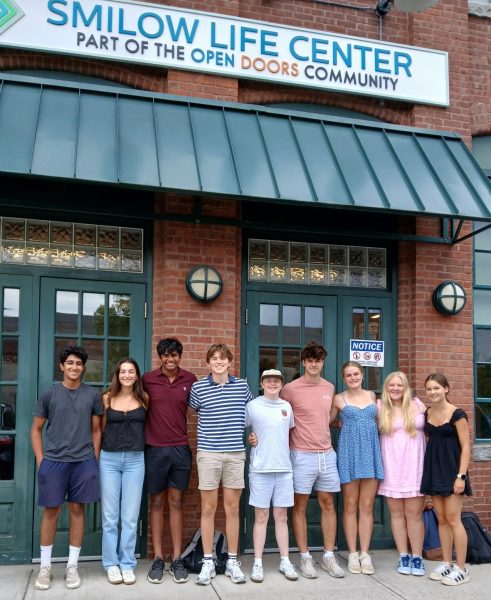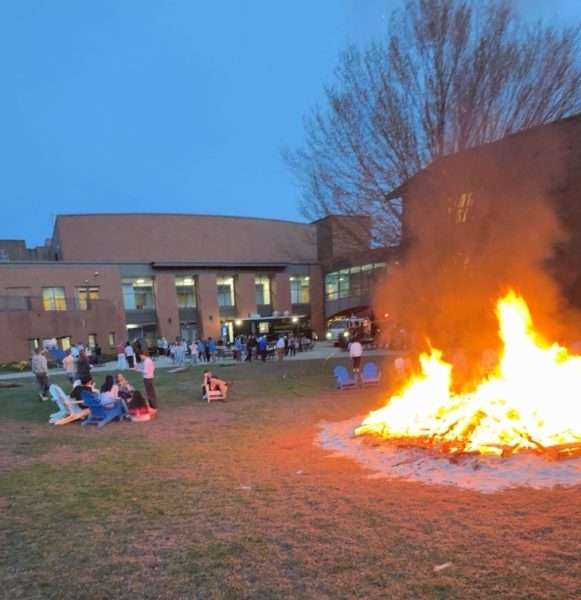Before Quarantine, Feeling Tired Was Normal for DHS Students
Schoolwork and extracurricular activities tap the energy levels of students
In a typical Blue Wave week, students feel the demands of school, sports, and social lives – that combination leads to extreme fatigue.
With school starting at 7:40 a.m. each day, tons of high school students are going through their day like zombies. Students attend their classes and work until the final bell at 2:20 in the afternoon.
However, 2:20 p.m. isn’t the end of their day for a lot of students. Darien High School has a large number of students participating in at least one season of a sport during the school year. In addition to athletics, lots of students are involved in school clubs whose meetings typically take place before or after school. A large number of the student body is engaged in extracurricular activities which is very positive, but also comes with a lot of commitment. Students voluntarily give up their own free time in order to participate in these activities, most of them becoming a big-time commitment.
Along with these extracurricular commitments, students are also given homework daily. Some nights hold a more excessive amount of work than others. Not to mention studying and preparing for assessments along with completing homework assignments only makes the night longer. The workload varies with the difficulty of each class. For example, those who take AP courses receive a larger amount of work compared to those students who are taking regular classes. No matter what, every student has some amount of work to do every day after school.
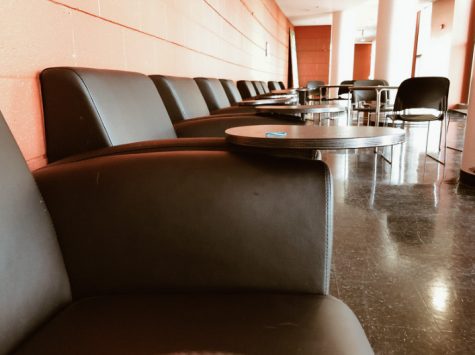
Losing sleep has mental and physical effects on students. It can affect their academic as well as their athletic performances. Their extracurricular commitments along with their academic work combine to cause students to lose sleep at night. In an article written by Stanford Medicine, “Teens have a biologic tendency to go to sleep later, yet many high schools start the day at a relatively early hour, disrupting their natural rhythm” (Monkey Business/Fotolia). Students’ sleep schedules are rarely maintained without disruptions. Many high schoolers find it difficult to constantly fall asleep at the same hour every night. Thus resulting in their rather familiar morning struggle to stay awake some days.
In order to fully understand how big-time commitments affect some students’ sleep and performances, I spoke to Danny Gordillo, a senior volunteer firefighter at the Darien Fire Department. Making a big commitment, Gordillo began volunteering for the department in September of his junior year. Gordillo has loved his time at the department so far saying, “I earned the “Rookie of the Year of 2019” award and have gained the trust and respect from my fellow officers and firefighters that have given me a great deal of opportunities that no other 17 year old would have done”. While he has very much enjoyed becoming a firefighter, he has spent much of his time after school at the firehouse.
For most of the school year, Gordillo has gone directly to the firehouse straight after school and stayed there until around eight or nine o’clock at night. However, this time is not spent doing homework or studying for tests. Gordillo said, “I cannot remember the last time I did homework there, but I am still there for the officers and my fellow fighters to see me making calls, drills, meetings, cleanups, etc”. He said that oftentimes he feels tired and exhausted during his morning classes at school. Part of this is due to the night calls that the department would sometimes receive, “we would have night calls at 1, 2, 3, 4, 5 o’clock in the morning”. Gordillo has loved becoming a firefighter, but it has had an impact on his sleep schedule. Sometimes it has cost him to lose valuable sleep during the nighttime. Major commitments outside of school such as becoming a volunteer firefighter have had an impact on the sleep of students such as Danny Gordillo.
While there are many major commitments students have that are not associated with the high school, athletics are a huge commitment for lots of students at Darien. I spoke with Cole Murphy, a sophomore on the varsity football team, to learn more about athletic commitments. Along with Gordillo, Murphy also finds himself feeling tired and exhausted during his morning classes. Being a varsity athlete is a big commitment at the high school as it occupies a lot of students’ time after school. Murphy said that he, “almost always feels tired during football season unless I am playing”. Many of the student-athletes at the high school feel that their sports do have some sort of an impact on their sleep schedule.
It has been scientifically proven that a loss of sleep can have negative effects on high school students. According to Dr. Johnathan Pletcher, an adolescent medicine specialist at the Children’s Hospital of Pittsburgh said, “a lack of sleep can increase depression, negative physical health like headaches, poor school performance, school absenteeism, and drowsy driving” (Sleepfoundation.org). One commonly discussed solution to this issue is moving the starting time of school to a later hour. This idea has been backed using information and support in favor of and against it. A study done by the American Psychological Association found that “The average start time across the U.S. is 8:03 a.m.” (Weintraub). Not all schools across the state start at the same hour. Neighboring towns and cities including Norwalk public high school have pushed back their starting time to 8:30 a.m., this start time will be put into effect next school year. Greenwich public schools pushed back their start times during the 2018 school year. Their public high school also starts at 8:30 a.m. now. Perhaps Darien High School should also consider pushing back their starting time for their students.
Carson Depp is a senior at Darien High School. He became interested in journalism during his junior year. In his free time, he sometimes writes articles...

